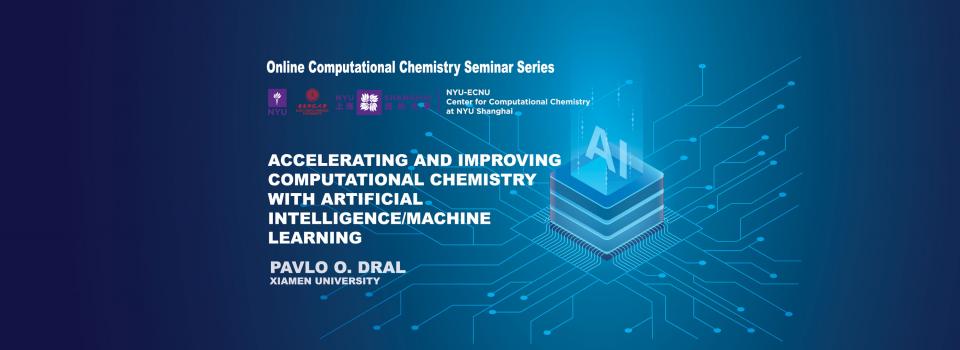
Zoom ID: 984 6384 2049
Passcode: 402887
- Join Via Zoom -
Abstract
Machine learning (ML) is an essential tool for moving forward the general field of artificial intelligence and ML has also made its way into computational chemistry, by accelerating and improving the accuracy of quantum chemical (QC) simulations. After initial explorations resulting in general concepts such as Δ-learning, our research has yielded general-purpose, artificial intelligence-enhanced quantum mechanical method 1 (AIQM1), which approaches the accuracy of golden-standard, traditional CCSD(T)/CBS approach for closed-shell, neutral organic molecules in their ground state at the speed of semiempirical quantum mechanical methods while retaining good accuracy for charged systems and excited states. AIQM1 can be used out-of-the-box, i.e., it does not need retraining. This method enables us to perform simulations we have not been able to do with either traditional quantum chemical approaches or with experimental techniques. AIQM1 and many other methods are implemented in our MLatom program package, which is a user-friendly package for atomistic machine learning simulations.
Biography
Pavlo O. Dral is an Associate Professor at Xiamen University since 2019. His research is focused on accelerating and improving quantum chemistry with artificial intelligence/machine learning since 2013, the topic on which he published ca. 20 peer-reviewed publications including articles in Nat. Commun., Nat. Rev. Chem., and Chem. Sci. Overall, Pavlo Dral has published over 40 articles, and his work has been cited over 2500 times with h-index of 21 (Google Scholar). Pavlo Dral is also the main developer of the MLatom package for atomistic machine learning simulations. His background is theoretical and computational chemistry, he obtained PhD in 2013 from University of Erlangen-Nuremberg and did post-doc with Prof. Walter Thiel from 2013 till 2019 in Max Planck Institute for Coal Research.
Seminar Series by the NYU-ECNU Center for Computational Chemistry at NYU Shanghai


